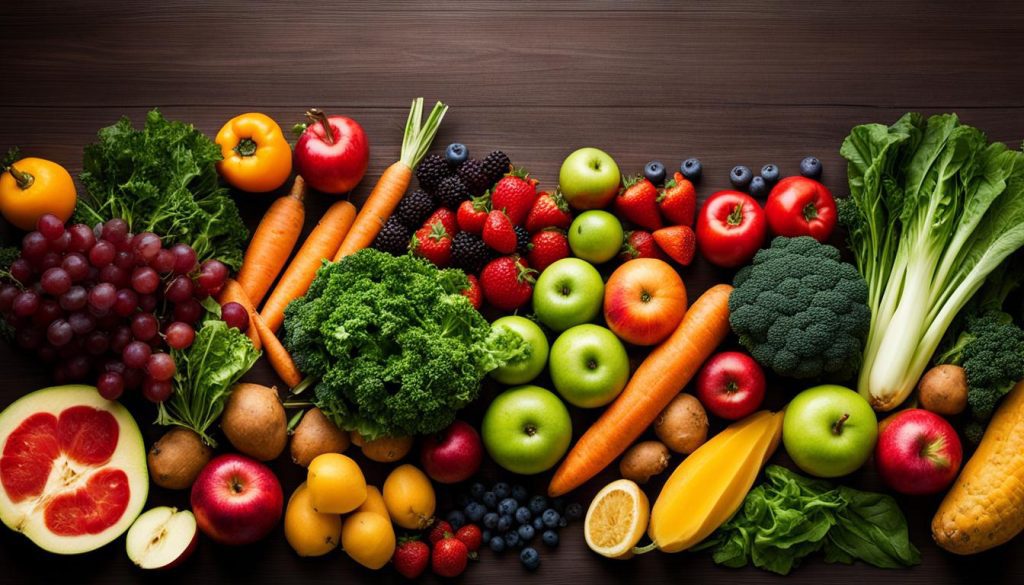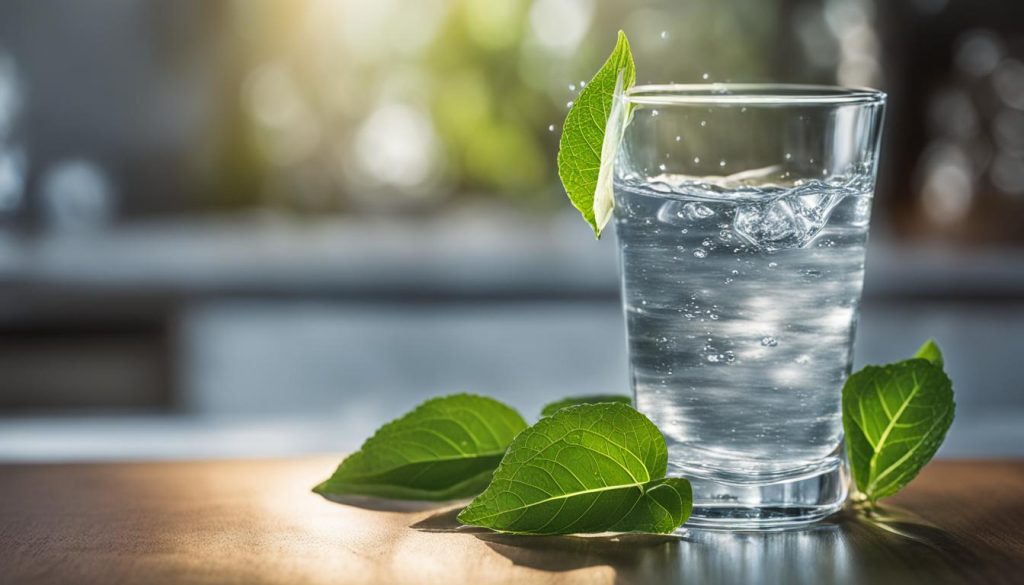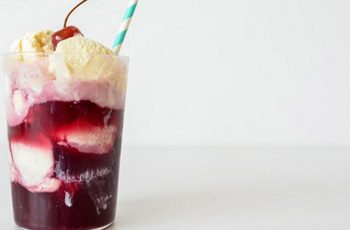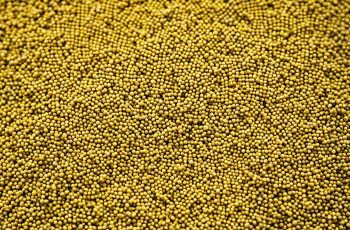When it comes to dental health and oral hygiene, the foods you consume play a crucial role. Some foods can harm your teeth and lead to issues like tooth decay and cavities. It’s important to be mindful of what you eat to maintain a healthy smile.
When you consume starchy or sugary foods, you’re not only feeding yourself but also feeding the bacteria in your mouth. These bacteria can produce acids that attack your teeth, leading to the breakdown of tooth enamel and the development of cavities. Plaque, a film of bacteria and other materials, forms on the surfaces of your teeth and when sugars or starches come in contact with plaque, acids are produced that attack your teeth.
By being mindful of the foods that are bad for your teeth and avoiding them, you can protect your dental health and reduce the risk of tooth decay and cavities.
Know the Foods That Are Bad for Your Teeth
- Avoid starchy or sugary foods that can feed bacteria and lead to tooth decay and cavities.
- Plaque, a film of bacteria and other materials, forms on your teeth and can be harmful when sugars or starches come in contact with it.
- Being mindful of what you eat is crucial for maintaining good dental health and oral hygiene.
- Protect your teeth by adopting a healthy diet that excludes foods that are bad for your dental health.
- Regular dental check-ups and cleanings are essential for maintaining a healthy smile.
The Bad Guys: Foods to Avoid
When it comes to maintaining good dental health, it’s essential to be mindful of the foods you consume. Certain foods can be particularly harmful to your teeth and oral hygiene. Let’s take a look at some of the culprits you should avoid:
1. Sticky Candies and Sweets
Sticky candies and sweets, especially those containing refined sugar, pose a significant threat to your dental health. These treats tend to stick to your teeth, allowing bacteria to feast on the sugars and promoting plaque production. So, it’s best to enjoy them in moderation, if at all.
2. Starchy Foods
Starchy foods such as soft breads and potato chips can easily get stuck in the crevices of your teeth, becoming a breeding ground for bacteria. Try to be mindful of these foods and make sure to clean your teeth thoroughly after indulging in them.
3. Carbonated Soft Drinks
Carbonated soft drinks, whether regular or diet, can be detrimental to your dental health. These beverages are not only high in sugar but also contain acids that can wear away tooth enamel over time. Limit your consumption of these drinks and opt for water or healthier alternatives instead.
4. Substances That Dry Out Your Mouth
Substances that dry out your mouth, such as alcohol and certain medications, can lead to a higher risk of dental problems. Saliva plays a crucial role in protecting your teeth and gums, so it’s important to stay hydrated and consult your healthcare provider if you notice any side effects from medications.
By being aware of and avoiding these “bad guys” in your diet, you can take proactive steps to protect your dental health and prevent potential issues down the line.
The Good Guys: Foods That Help Fight Plaque

I’m excited to share with you some of the best foods that can help fight plaque and promote dental health. Including these foods in your diet can contribute to stronger teeth and gums, and a brighter smile. Let’s take a closer look at these plaque-fighting superheroes:
Fiber-Rich Fruits and Vegetables
Incorporating fiber-rich fruits and vegetables into your diet not only provides essential nutrients but also helps keep your teeth and gums healthy. These foods, such as apples, carrots, and celery, have a natural cleansing effect on the teeth. Chewing these crunchy options stimulates saliva production, which neutralizes acids and cleanses the mouth. The fiber content also helps scrub away plaque.
Dairy Products
Dairy products like cheese, milk, and plain yogurt are an excellent addition to your dental health routine. They contain calcium and phosphates, which are essential for rebuilding tooth enamel. Additionally, these products stimulate saliva production, aiding in the removal of food particles and bacteria from the mouth.
Green and Black Teas
Enjoying a cup of green or black tea can do wonders for your oral health. Both tea varieties contain polyphenols, which can kill or inhibit plaque bacteria. Drinking these teas regularly can help prevent the formation of plaque and reduce the risk of cavities and gum disease.
Sugarless Chewing Gum
Chewing sugarless gum after meals can be a great way to maintain dental health on the go. This gum stimulates saliva production, which helps neutralize acids and wash away food particles. Look for brands that contain xylitol, a natural sugar substitute that can also hinder the growth of bacteria in the mouth.
Foods with Fluoride
Foods and beverages that contain fluoride are beneficial for dental health. Fluoride strengthens tooth enamel and can help prevent tooth decay. Look for fluoridated drinking water, powdered juices, and commercially prepared foods that contain this essential mineral.
By incorporating these plaque-fighting foods into your diet, you can give your teeth the best chance at staying healthy and strong. Remember, a balanced diet, along with regular brushing and flossing, is key to maintaining optimal dental health.
Eat for a Healthy Mouth: Tips for Dental Health
To maintain a healthy mouth and prevent tooth decay, it’s important to follow these dental health tips:
- Eat sugary foods with meals: Instead of snacking on sugary foods throughout the day, consume them during meal times. When you eat, saliva production increases, which helps neutralize the acids produced by bacteria and reduces the harmful effects on your teeth.
- Limit between-meal snacks: Constant snacking exposes your teeth to sugars for longer periods, increasing the risk of tooth decay. Try to limit snacks between meals and opt for healthier alternatives like fruits and vegetables.
- Drink more water: Water not only keeps you hydrated, but it also helps wash away food particles and stimulates saliva production, which plays a crucial role in maintaining dental health. Make sure to drink fluoridated water whenever possible to provide additional protection against tooth decay.
- Brush your teeth twice a day: Brushing your teeth twice a day, in the morning and before bed, helps remove plaque and bacteria from the surfaces of your teeth. Use a fluoride toothpaste and a soft-bristled toothbrush for optimal results.
- Floss once a day: While brushing cleans the surfaces of your teeth, flossing helps remove plaque and food particles from between your teeth and along the gumline. Incorporate this habit into your daily oral hygiene routine to maintain healthy gums and prevent dental issues.
By following these tips and practicing good oral hygiene, you can ensure a healthy mouth and reduce the risk of tooth decay and gum disease.

Foods That Cause Plaque: Dental Health and Diet
When it comes to dental health, the foods we consume play a significant role. It’s essential to be mindful of the specific foods that can cause plaque buildup and damage to our teeth. By understanding and avoiding these culprits, we can protect our dental health and maintain a radiant smile.
Sour Candies
Sour candies may be delicious, but they are particularly harmful to our teeth. Their high acidity and longer contact with teeth can erode enamel and contribute to plaque formation. It’s best to limit or avoid consuming these sweets to protect our dental health.
Bread
Bread, especially when chewed, can break down into sugar and adhere between our teeth. This creates an ideal breeding ground for plaque-causing bacteria. It’s essential to practice good oral hygiene and brush thoroughly to remove any remnants of bread to prevent cavity formation.
Alcohol
While enjoying alcoholic beverages in moderation is fine, excessive alcohol consumption can negatively impact our dental health. Alcohol can lead to dry mouth, reducing saliva production, which is essential for neutralizing acids and maintaining a healthy oral environment. It’s essential to drink plenty of water alongside alcohol to stay hydrated and minimize its effects on our teeth.
Carbonated Drinks
Carbonated beverages, such as sodas, can have detrimental effects on our dental health. These drinks are not only high in sugar but also contain acids that can increase plaque production and wear away tooth enamel. It’s best to limit our intake of carbonated drinks and opt for water or unsweetened alternatives as a healthier choice for our teeth.
Chewing on Ice
Chewing on ice may seem harmless, but it can cause significant damage to our tooth enamel. The habit of crunching on ice cubes can weaken enamel, making our teeth more susceptible to fractures. It’s important to break this habit and protect our dental health.
Citrus Fruits, Potato Chips, and Dried Fruits
Citrus fruits, potato chips, and dried fruits are all foods that can contribute to plaque formation and tooth decay. Citrus fruits are acidic and can erode enamel over time. Potato chips tend to get stuck between teeth, providing an ideal environment for plaque-causing bacteria. Dried fruits, although a healthy snack option, are high in sugar and can stick to teeth, promoting plaque formation. It’s best to consume these foods in moderation and practice good oral hygiene to minimize their impact on our dental health.
Conclusion
Maintaining good dental hygiene and oral health is crucial for a healthy smile. It starts with being mindful of the foods we consume on a daily basis. By avoiding foods that are bad for our teeth, like sticky candies and sugary drinks, we can protect our dental health and reduce the risk of tooth decay and cavities.
However, dental care is not just about what we eat. It’s also about practicing good oral hygiene habits. Making sure to brush our teeth twice a day and floss once a day helps remove plaque and prevent gum disease. These simple habits can go a long way in maintaining optimal oral health.
While healthy food choices and regular oral care are essential, it’s equally important to visit our dentist regularly for check-ups and cleanings. These professional dental visits allow us to identify any potential issues early on and address them before they become more serious. Our dentist can also provide personalized advice and guidance on maintaining our oral health.
Remember, dental health is an integral part of our overall well-being. By prioritizing dental care, we can enjoy a healthy smile and maintain optimal oral health for years to come.
FAQ
What are some foods that are bad for your teeth?
Foods that are high in sugar, sticky, acidic, or hard can be harmful to your dental health. Examples include candy, soda, chips, and ice.
What foods can help fight plaque?
Fiber-rich fruits and vegetables, dairy products, green and black teas, sugarless chewing gum, and foods with fluoride can help fight plaque and promote dental health.
What foods should I avoid for good dental health?
It is best to avoid sticky candies and sweets, starchy foods, carbonated soft drinks, and substances that dry out your mouth for optimal dental health.
What are some tips for maintaining dental health through diet?
Eat sugary foods with meals rather than as snacks, limit between-meal snacks, drink more water, brush your teeth twice a day, and floss once a day for a healthy mouth.
What foods can cause plaque buildup?
Sour candies, bread, alcohol, carbonated drinks, ice, citrus fruits, potato chips, and dried fruits are some examples of foods that can cause plaque buildup and tooth decay.
How can I ensure good dental hygiene and oral health?
Practicing good oral hygiene habits like regular brushing and flossing, making healthy food choices, and visiting your dentist regularly for check-ups and cleanings are crucial for maintaining a healthy mouth.




